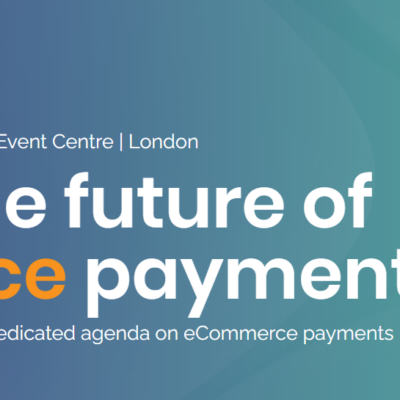As we celebrate International Women’s Day, it’s a moment to reflect on the progress made towards gender equality while recognizing the continued need for action.
This year’s theme, “Invest in Women/Accelerate Progress,” calls for concerted efforts to empower and support women across all spheres of life.
In this blog, we invited some of the remarkable women in our business from all departments to share their insights on what this theme means to them, and how investing in women can truly accelerate progress.
Investing in women, a human rights issue:
Time is running out. Gender equality is the greatest human rights challenge, benefiting everyone. What does ‘investing in women’ mean to you?
“Providing flexibility, time freedom and having the opportunity to excel in a career and homelife.”
“To me, investing in women involves creating an environment where women have equal opportunities for advancement, fair pay, and representation in leadership positions.
In addition to this, investing in female colleagues will aid in building an environment where women feel comfortable putting themselves forward and sharing opinions and ideas, without the threat of ridicule.”
“It means investing time and understanding so that we can get to a place where we are investing in people, where gender doesn’t impact anyone. It would be great to see more women in senior roles across the Fintech and Payment industries.
On a separate issue, companies can offer more understanding, support and flexibility for women in the workplace when they experience health issues and illness linked to being a woman. Even a monthly period can impact how we work significantly.”
Ending poverty:
Due to the COVID pandemic and conflicts, 75 million more people have fallen into severe poverty since 2020. Immediate action is crucial to prevent over 342 million women and girls living in poverty by 2030. How do you think we can take positive action on this?
“Businesses can provide more support to local/national charities. Many organisations have also chosen to implement a cross comparison benchmark when reviewing salaries for women within the organisation, which is a great way to improve wage transparency.”
“We can take various positive steps to tackle poverty, especially its impact on women and girls, with fair wages and better opportunities for women. Companies can also aid in the running of programs that teach soft skills, help start businesses, or advance skills required in current roles more effectively.”
“Companies can provide safe spaces for women to talk about their financial circumstances within the workspace and offer support to those who may need it. We can also act by fundraising for women’s charities and raising awareness.”
“Providing support to specific charities related to women that have been affected by this would be a good start. However, tech and fintech companies can also ensure they provide women with better opportunities to move into tech-related roles.”
“Raise awareness, so that those more fortunate can invest time/money to support any charities that help with these scenarios. Also, companies can get to know their workforce and understand if anyone falls into this bracket, and if there are ways to support them (for example, interest free loans repaid back over longer periods of time, free meal vouchers etc).”
Implementing gender-responsive financing:
Conflicts and rising prices may lead 75% of countries to cut public spending by 2025, negatively impacting women and their essential services. How can we improve this?
“Companies can urge their exec teams and boards to prioritise gender equality in budget allocations. Collaborate with local women’s organisations. providing access to education, training, and resources that enable women to participate fully in decision-making processes.”
“It’s up to all of us to ensure that funds are distributed in a way that treats everyone fairly. By keeping this in mind when planning budgets, we can make the world a fairer and better place for everyone. Companies can use their influence to push for rules that make sure budgets and spending plans consider gender equality. This might mean talking to board members, joining campaigns, or supporting groups that push for fair budgeting practices. Companies can also help by gathering data that shows how money is being spent and how it affects women and girls.”
“One key way that businesses can support women is to provide free sanitary products in the office.”
“We can raise awareness by becoming advocates and ensuring that research is conducted in the right areas to ensure that the specific needs of women continue to be met.”
Shifting to a green economy and care society:
The current economic system disproportionately affects women. Advocates propose a shift to a green economy and care society to amplify women’s voices. Could you share any insight or perspective you have on this?
“Shifting to a green economy and care society means moving towards a system that not only focuses on environmental sustainability, but also values and prioritises care work, which is often performed by women. Coming from a background in the care industry myself, I have first-hand experience of the hard work and dedication that is required within the social care sector – work that is very often underpaid and undervalued within our society.”
“A greener economy could provide benefits for both men and women, though this would be most beneficial for women. The care society model is integral to realising the need to care for one another, especially as women in a changing world.”
“I believe that there is still a stigma against women when it comes to family and are seen as the main caregiver. A role as a mother, which is without a doubt extremely important, should not affect our career prospects. If we can change this mindset, we start to change the way the world works. Women are fantastic at thinking about every aspect and making sure problems don’t arise in the future by taking mitigating action. By amplifying women’s voices, you may be able to stop future risks.
Supporting feminist change-makers:
Despite leading efforts, feminist organizations receive only 0.13% of official development assistance. Why do you think this is? How can we improve this?
“This may be due to the social stigma surrounding the word feminist, and the misinformation that is spread regarding what it means to be a feminist. We can improve this by educating those around us on the work carried out and the true meaning of feminism.”
“I believe that most of the change which has been bought to fruition by the feminist movement has now been realised as a society. Though there are still gaps in gender equality, these are not perceived to be as important as historical issues, which may lead to a fall in recognition. Raising awareness for women’s issues can help people to understand the need for these organisations.”
“I think there is a stigma around the term ‘feminism’ – people think of this as an extreme and believe that this means women are better than men. This is not the case. It purely means that women should have the same rights as a man, regardless of where they are in their life. I think we need to change how people view ‘feminism’ and how we view female leaders.”
Do you have any other thoughts around this topic you would like to share?
“Choices are made for women by men in governments all around the world. Women are held to higher standard across the board and must wear multiple hats in day-to-day life whilst still being made to feel that they aren’t good enough (but should also be grateful for everything they have today).
To improve prospects for women, we need to look at society as a whole, rather than ‘men vs women’. The 40-hour work week was introduced when women were predominantly stay at home wives/mothers. Now that both parents are expected or want to work in the majority of households, businesses expect more hours and more dedication from all employees, which puts unnecessary stress on families – both men and women. This needs to change.”
“I believe that women can be fierce, loyal and strong minded – the same as a male counterpart. But the way that it can come across is more emotional, which unfortunately leads to a stigma around how women deal with problems. Yes, we are passionate about things, and sometimes this means that we can get heated (or even cry) – but this should never take away from the work that women do and the opportunities that they are provided.”
“Being an ally to women involves actively advocating for gender equality, challenging stereotypes, and promoting positive change. Anyone can do this by becoming educated on women’s issues, supporting other women (both far and near) and being inclusive.”
Together, through advocacy, support, and meaningful action, we can create a world where every woman and girl has the opportunity to thrive and fulfil their potential. Let’s continue to celebrate, empower, and uplift women not just today – but every day.
Find out more about International Women’s Day.




 Tweet
Tweet
 Facebook
Facebook


















